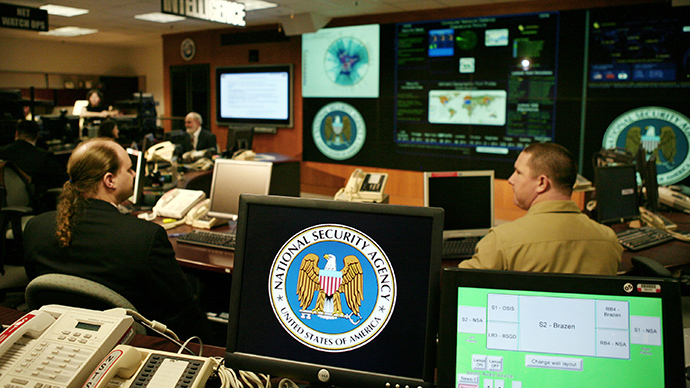‘US doesn’t have luxury of spying on allies while unable to provide security at home’

The US does not have the luxury to spy on its allies, as its intelligence services cannot cope with domestic security, letting terrorists commit atrocities on US soil, NSA whistleblower Kirk Wiebe told RT.
RT:French President Francois Hollande called an emergency meeting of the country's Defense Council. What kind of impact is this meeting going to have?
Kirk Wiebe: You know it is difficult to tell. I think it is going to create some outrage especially among the French people. But they too are aware of the Angela Merkel incident, so I do not think they will find it totally surprising. We have heard people here in the US who have been long time members of the intelligence business say that all countries do this, and all countries should expect it. I'm not quite so sure about that; I think we need to evolve a little bit as a civilization if we're going to earn each other’s trust.
RT:Do you think the French president is going to take any measures to counter this surveillance of the country's leaders?
KW: That is a really good question. France is a little more independent-minded - at least from my perspective - than some of the other traditional friends of the US in Europe. Germany of course probably along with England being the closest two allies. France - not quite as close, so it will be interesting to see if the French are willing to take steps beyond something that are symbolic of outrage.
READ MORE: Hollande says US spying 'unacceptable' after WikiLeaks report, ambassador summoned
RT:It's not the first time we have heard about Washington spying on its key allies. Why is the US doing this?
KW: Frankly, because someone in the White House or someone in government very high up wants to know what our allies are thinking, what they are planning on doing under certain circumstances. And I would think most of those circumstances involve things such as foreign trade, political alliances and that type of thing that governments would traditionally be interested in. I do not believe for example that the government is trying to find out what kinds of weapons systems the French have. I do not think that is a concern. But I would point out – we are missing terrorist events in our own country. Be it the Boston marathon, Fort Hood those types of things. Do we really have the luxury to spy on our friends when we don't really seem to have the ability to catch truly bad guys?
‘Still no response from govt on how surveillance services can be controlled’
Amnesty International France campaigner Dominique Curis says recent revelations are not surprising as they show what happens if intelligence services operate without any kind of control.
RT:The reaction of Germany and France is basically the same. But has anything changed since Edward Snowden's revelations back in 2013?
Dominique Curis: I’m afraid not so much has changed. These revelations are unfortunately not much of a surprise. It just confirms what happens when you let intelligence services act without control and you see that their activities have nothing to do– contrary to what we is said – with the struggle against terrorism.
RT:Do you foresee France taking anything other than symbolic action?
DC: It’s interesting to note that today the French parliament is about to approve a bill that allows international surveillance without any kind of control. What our government is outraged about is what it is about to legalize today, that’s a kind of paradox. It reveals all the hypocrisy of these discussions [by] the French government and all the intelligence services.
RT:How will that affect the relationship between the US and France?
DC: I’m not sure it will affect much because the NSA is sharing information with French intelligence services and French intelligence services might be sharing personal information with the NSA. All this happens without any kind of judicial control and that’s a problem. So we will hear some outrage today, some declarations from the government and so on. But structural response is what we expect and this is what we do not hear at the moment – how can we control our surveillance services?
The statements, views and opinions expressed in this column are solely those of the author and do not necessarily represent those of RT.
The statements, views and opinions expressed in this column are solely those of the author and do not necessarily represent those of RT.












